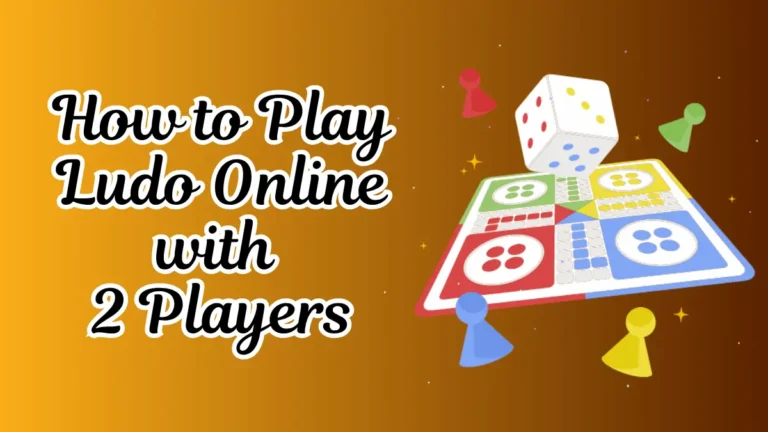Ludo Rules Explained: Play Traditional & Online Ludo to Earn!
Play smarter—whether you roll real dice or tap on a screen.
Ludo began as the ancient Indian game Pachisi. Over centuries it grew into the colourful board we know—and lately into fast-paced mobile apps that even award cash prizes. Understanding the rules in both formats is the first step toward confident, enjoyable play.
Traditional Board-Game Ludo
| What you need | Details |
|---|---|
| Players | 2 – 4 (one colour each) |
| Tokens | 4 per player (red, blue, yellow or green) |
| Dice | One six-sided die |
| Board zones | Home base, main track, safe squares (★), coloured home column, centre Home triangle |
Objective
Move all four tokens from home base ➜ around the board ➜ into your colour’s centre Home. The first to do so wins.
Getting Started
- Every player rolls once; highest goes first.
- Roll a 6 to release a token onto the starting square.
- A roll of 6 grants one extra turn. Three 6s in a row = turn skipped.
Taking Your Turn
- Roll the die, choose any legal token, and move it clockwise the exact count.
- If no legal move exists, you pass.
Capturing & Blocking
- Land on an opponent’s square → their token goes back to base.
- Two tokens of the same colour on one square create a block; rivals can’t land or pass until the block moves or splits.
Safe Squares
Stars (★) protect any token parked there—no captures allowed.
Entering Home
- After one full lap, a token enters its home column.
- You must roll the exact number to land inside the centre triangle.
Win Condition: All four of your tokens reach Home.
Online Ludo
Online apps follow the same core rules but add speed and variety.
Quick Setup
- The app auto-assigns colours and places tokens.
- Some modes start with tokens already “open,” so no opening 6 is needed.
Popular Game Modes
| Mode | What’s different? |
|---|---|
| Classic | Mirrors board-game rules. |
| Quick | Fewer squares or pre-opened tokens = shorter games. |
| Tournaments | Knock-out rounds; entry fees create a prize pool. |
| Team Play | Two-versus-two partnerships on many platforms. |
Extra Digital Features
- Auto dice & movement—play is faster, mistakes are fewer.
- Timers—typically 15-30 seconds per turn to keep matches brisk.
- Power-ups—shields, extra rolls or short-cuts (platform-specific).
- Chat & emojis—for friendly banter.
- Leaderboards—track ratings and earnings.
Tip: Always review each app’s rules page; small tweaks (like re-entry on a roll of 5 instead of 6) can affect strategy.
Board vs Online—Key Differences at a Glance
| Aspect | Physical Board | Online App |
|---|---|---|
| Start requirement | Usually roll a 6 | Depends on mode (often auto-open) |
| Pace | Relaxed; manual moves | Fast; automated moves + timers |
| Interaction | Face-to-face talk | Chat, emojis, global opponents |
| Extras | House rules only | Power-ups, leagues, cash prizes |
| Setup time | 1–2 minutes | Seconds—just open the app |
Smart Strategies for Both Formats
- Open early. The more tokens on the board, the more options each roll gives you.
- Spread risk. Don’t rush a single token; balance progress across all four.
- Use safe squares. Park a vulnerable piece on a ★ if rivals are nearby.
- Think ahead. Count squares before capturing—retaliation might cost you.
- Plan exact finishes. When in the home column, aim for rolls that land a token safely inside Home without overshooting.
Fair Play & Etiquette
- Respect opponents—online or offline.
- Finish games you start. Quitting mid-match hurts your ranking and reputation.
- In cash-reward apps, set a budget and stick to it.
Ludo’s charm lies in its blend of luck and clever moves. Whether you enjoy rolling real dice at family gatherings or tapping your way through online tournaments, mastering these simple rules will make every game smoother—and far more exciting. Grab a board or download an app, and let the good times roll!




![Is Playing Ludo for Money Legal in India Explained with Law & Facts [2025]](https://ludoearningapp.in/wp-content/uploads/2025/04/Is-Playing-Ludo-for-Money-Legal-in-India-Explained-with-Law-768x512.webp)


